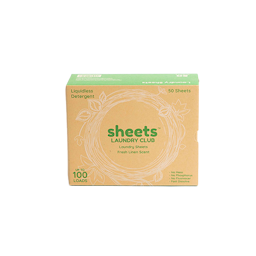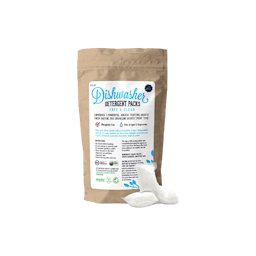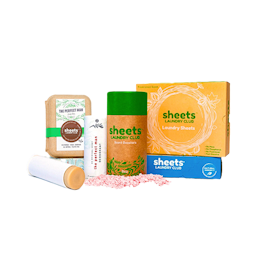Common Laundry Mistakes That Could Be Ruining Your Clothes
Proper laundry practices are essential for prolonging the life of your clothes. Avoiding common laundry mistakes can keep your clothes looking fresh and prevent unnecessary damage. However, many people unknowingly make errors that lead to fading, shrinking, and fabric wear.
From using too much detergent to overloading the washing machine, these small mistakes can damage clothes. In this blog, we'll explore some of the most common laundry mistakes and offer tips on how to save ruined clothes. This will ensure your clothes stay in great condition for longer.
Overloading the Washing Machine
One of the most common errors is overloading the washing machine. A packed machine can lead to less effective washing, as clothes need more space to move around and clean properly, or packed too tightly can lead to snags and holes in your clothes after washing. It also puts unnecessary strain on the machine, causing it to wear out faster.
Overloading can also cause the washing machine to become unbalanced during the spin cycle. This imbalance can lead to excessive vibrations, damaging the machine and the surrounding area. In severe cases, it can cause the machine to move or shake, creating a risk of leaks or mechanical issues.
With too many items packed into the drum, the machine struggles to rinse out all the detergent and residues. This can lead to detergent buildup on clothes, making them feel stiff or irritating to the skin. Residual detergent can also contribute to an unpleasant odor over time.
Using Excess Detergent
Using too much detergent might seem like a good idea, but more is not always better. Excess detergent can lead to several issues, starting with residue buildup on your clothes. When you use too much soap, it often doesn't rinse out entirely during the washing cycle, leaving behind a detergent film on the fabric.
This residue can make clothes feel stiff and rough, and over time, it can cause colors to fade. Additionally, detergent residue can irritate sensitive skin, leading to itching or rashes. It can be more harmful in children or those with skin conditions.
The problems don’t stop with your clothes. Overusing detergent can also negatively impact your washing machine. The excess soap can:
- Create a buildup inside the machine’s drum and hoses
- Lead to unpleasant odors
- Reduce the efficiency of the machine over time
- Contribute to mold and mildew growth
In the long run, using too much detergent can lead to higher maintenance costs, as your washing machine may require more frequent cleaning or repairs to keep it functioning correctly.
Incorrect Water Temperature For Different Fabrics
Choosing the correct water temperature for washing your clothes is also important. Why? Different fabrics require different care. One of the most common mistakes is using water that is too hot, particularly when washing delicate fabrics.
Hot water can significantly damage materials like silk, lace, or wool. It can lead to shrinking, warping, and weakening of the fibers. Wool, for example, can become misshapen or felted, while silk may lose its luster and become brittle.
Even sturdy fabrics, like cotton, can suffer from hot water exposure. While cotton can typically withstand higher temperatures, repeated washing in hot water can cause colors to fade faster and weaken the fabric over time. It makes your clothes dull and less vibrant much sooner than they should.
In contrast, cold water is generally safer for most delicate fabrics. It’s less likely to cause shrinkage, color bleeding, or fabric damage. However, washing heavily soiled clothes in cold water may not be as effective in removing stains and dirt.
Zippers and Unsorted Clothes
Leaving zippers unzipped during a wash cycle might seem like a minor oversight, but it can damage clothes. Unzipped zippers, especially those made of metal, can easily snag on other garments, leading to ruined clothes. It can cause tears, pulled threads, or holes in your clothes.
Delicate fabrics like knits, lace, or lightweight materials are particularly vulnerable to this type of damage. Additionally, the rough edges of unzipped zippers can scrape against the drum of your washing machine, potentially leading to scratches or damage over time.
Similarly, not sorting clothes properly before washing them can cause a host of issues. Mixing dark or brightly colored clothes with lighter fabrics can result in color bleeding, where dye from one garment transfers to another.
Failing to sort by fabric type can also lead to uneven wear. Heavier fabrics, like jeans or towels, can be rough on more delicate items, leading to pilling, stretching, or even holes. By taking the time to zip up zippers and sort your laundry, you can prevent these issues and keep your clothes in better condition.
Misuse of Fabric Softener on Towels and Athletic Wear
While fabric softeners can make clothes feel soft and fresh, they are not always suitable for every type of fabric. They can be tricky for towels and athletic wear, as using them can reduce their absorbency.
The softening agents coat the towel fibers, making them less effective at soaking up water. Over time, this buildup can leave your towels feeling less fluffy and less efficient at drying you off.
Conversely, athletic wear has moisture-wicking properties to keep you dry during exercise. Fabric softeners can interfere with these properties by leaving a residue on the fabric, diminishing its ability to wick moisture away from your skin. This can make your workout clothes less effective at managing sweat and may leave you feeling damp and uncomfortable.
To maintain the performance of your towels and athletic wear, it's best to skip the fabric softener and use alternatives like white vinegar for a softer feel.
Sheets Laundry Club: Your Eco-Friendly Cleaning Partner
To keep your clothes looking their best, avoid excessive dryer heat. High temperatures can cause fabrics to shrink and lose their integrity over time, leading to premature aging of your garments. Instead, opt for lower heat settings or air-dry delicate items to maintain their quality.
Always check care labels before washing and drying. They provide instructions on the best settings for each fabric type. By choosing the correct laundry settings and being mindful of heat, you can extend the lifespan of your clothing.
Enjoy the convenience of our subscription boxes delivered right to your door with Subscribe and Save today! Want more cleaning tips? Visit Sheets Laundry Club’s website and contact us with your questions.


